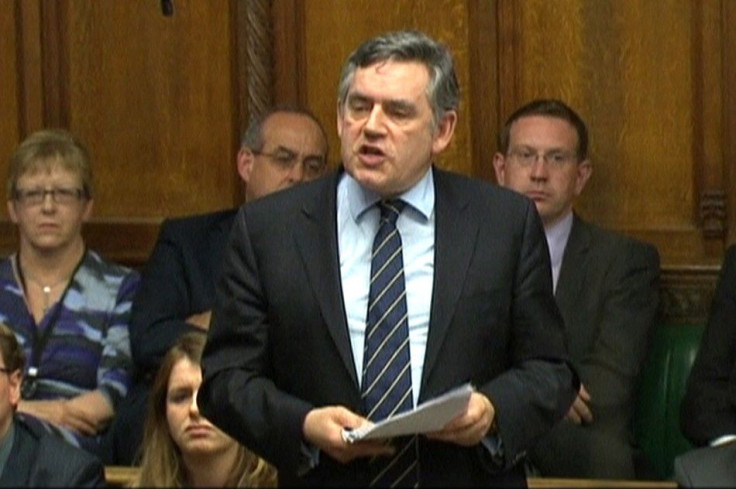Europe on Brink of 1930’s-Style Economic Catastrophe: Gordon Brown

Europe is in danger of slipping into a 1930’s-style economic Depression if it does not respond adequately to the debt crisis that has engulfed the eurozone, warned former British Prime Minister Gordon Brown.
Speaking at the World Economic Forum in Dalian, China, the former Labour Party chieftain said: “The euro can't survive in its present form and will have to be reformed drastically. Unless there is global coordination, I foresee 10 years of low growth in Europe and America, with very high levels on unemployment, that will lead in the end to greater protectionism. This is exactly like the 1930s.
As finance ministers and other senior officials meet in Warsaw, Poland, to tackle Europe’s fiscal woes, Brown explained that the financial woes in Europe are, at their essence, a crisis in banking, not debt.
The European banks as a whole are grossly undercapitalized: They have liabilities far in excess of American banks. We have now got the interplay with sovereign debt because we socialized the liabilities, he said.
It has morphed into a sovereign debt crisis, and is more serious than 2008 because governments then could intervene to sort out banks. Now both banks and governments have problems. You cannot begin to solve this unless you realize that it is a banking problem and a growth problem, as well as being a fiscal problem. You have to take coordinated action in all three areas.”
Brown further warned that the 440-billion-euro European Financial Stability Facility (EFSF) bail-out fund will require substantially more resources to cope with the crisis.
People do not believe that Greece can pull through without a default, he said.
He also insisted that the Chinese must increase consumption in order to ease the economic calamities in the West and alleviate the trade imbalance.
Brown’s remark prompted George Yeo Yong-Boon, the former Singaporean foreign minister, to quip: China is not going to consume to save the world. It will act in its own enlightened self-interest.”
Yeo added: China and India are going to grow, whatever happens to the global system. The world will muddle along as it has for much of history. If Greece leaves the euro, it is more likely the eurozone can be saved, and it would have an illuminating effect on politics in Europe.”
Yeo also warned that the U.S. and Europe are facing a ”very painful” period.
Brown further criticized the austerity measures being imposed across European nations.
You can impose all the fiscal contraction in the world, and yet more austerity, and that will drive the economy further into recession. Greece's economy will contract 5 percent this year, and we're not seeing recovery in Spain, Portugal, Italy and Ireland, he said.
The Europeans can hold hundreds of meetings but if they are not prepared to face up to the problem they are dealing with, they are not going to get the right answer.
Zhu Min, the International Monetary Fund’s deputy managing director and the principal Chinese representative at the IMF, also gave a gloomy forecast at Dalian.
This [debt crisis] is the most urgent crisis facing the world today, he said.
There is no room for politicians to muddle through: They have to take decisive action today. Banks must be recapitalized and made solvent.”
© Copyright IBTimes 2025. All rights reserved.





















